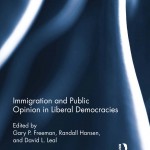Navigating the Anthropocene: Improving Earth System Governance
July 16, 2012
Science assessments indicate that human activities are moving several of Earth’s sub-systems outside the range of natural variability typical for the previous 500,000 years. Human societies must now change course and steer away from critical tipping points in the Earth system that might lead to rapid and irreversible change.
Read full entry








